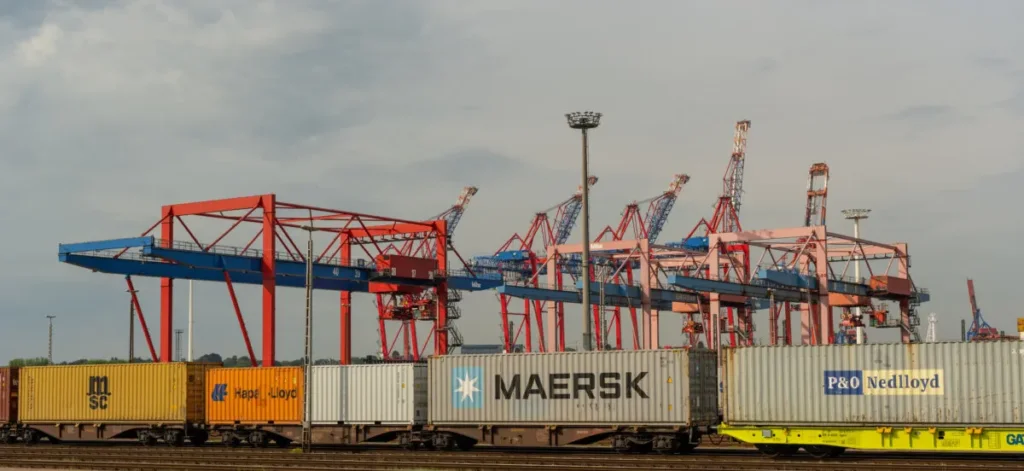Hapag-Lloyd stressed that the current shipping strategy would remain in place until further notice.
According to Reuters, the company said
“We continue to monitor and review the situation on an ongoing basis. As soon as the situation changes and it is safe again, we will route our vessels through the Red Sea and the Suez Canal.”
The shipping group had earlier announced a proactive measure to mitigate the impact on its business.
It introduced land corridors through Saudi Arabia, according to an official statement on its website. The statement assured customers that the company would provide land connections from Jebel Ali, Dammam and Jubail to its sea shuttle service from Jeddah.
Maersk adjusts ME2 service route for safety amid volatility in Red Sea
Also yesterday, 22 January, Maerks informed its customers of significant changes to its ME2 service in response to the ongoing volatility in the Red Sea and Gulf of Aden region.
The primary focus of these changes is to prioritise the safety of seafarers, vessels and cargo whilst providing customers with greater predictability and reliability for their supply chains in this challenging environment.
Key changes to the ME2 service include an interim diversion via the Cape of Good Hope (COGH). The revised rotation of the service will now cover the following ports: Jebel Ali, UAE – Mundra, India – Jawaharlal Nehru, India – Port Tangier, Morocco – Algeciras, Spain – Salalah, Oman – Jebel Ali, UAE. This alteration means that the service will turn in the West Mediterranean, and westbound calls to Salalah and Jeddah will be paused until further notice.
The Maersk Gibraltar, departing from Port Tangier on 23 January 2024, will be the first eastbound sailing affected by this change, with the first westbound sailing affected departing from Salalah around 4 February 2024.
To minimize disruptions to customer businesses, Maersk will utilize the ports of Algeciras and Tangiers for onward connections to northern Europe and the Mediterranean. Additionally, a feeder for Valencia, Spain, and Vado, Italy, will be added. Maersk’s hubs in Salalah and Jebel Ali will continue to offer connections to remaining locations in the Middle East.
EU announces military mission in the Red Sea
European Union foreign ministers agreed in principle to organise a mission to protect ships from Houthi attacks around the Arabian Peninsula at their monthly meeting in Brussels on Monday.
Announcing the decision, EU foreign policy chief Josep Borrell said the operation could begin as early as next month.
Under current plans, the EU operation would involve the deployment of European warships and airborne early warning systems to protect cargo ships in the region. Notably, the report clarifies that the EU’s involvement would not extend to participating in US strikes against Houthi positions in Yemen.









